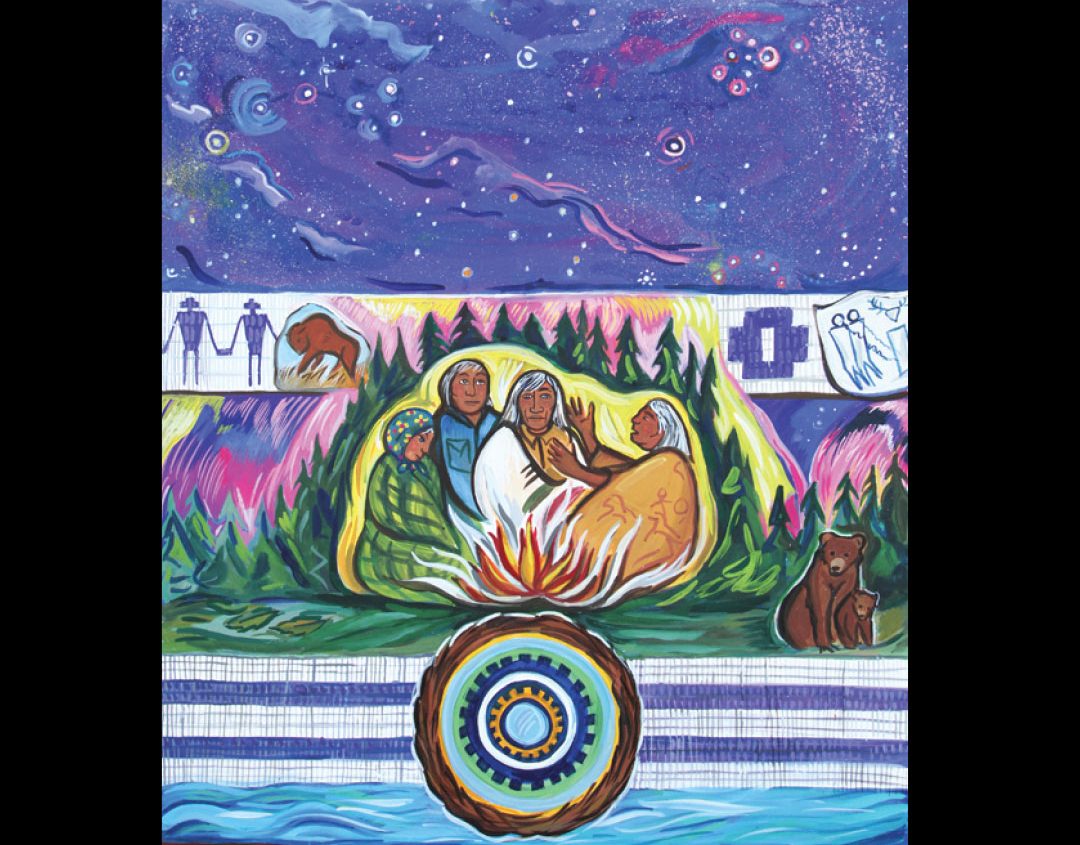
Indigenous law depicted by Sherri Farrell Racette, and featured on the cover of the inaugural Interdisciplinary Journal of Indigenous Inaakonigewin
What action on Indigenous law could mean for everyone
Inaugural interdisciplinary conference open to community
When the Canadian government released its National Action Plan to align federal laws with the United Nations Declaration on the Rights of Indigenous Peoples (UNDRIP), leadership in UM’s Faculty of Law saw an opportunity to create community dialogue.
“Traditionally, the Faculty of Law has been sort of an ivory tower where they focus on their own discipline,” says Leo Baskatawang, Assistant Professor in the Faculty of Law. “With the emergence of the Truth and Reconciliation Commission, and the goal of reconciliation, it’s opened up an opportunity to expand those horizons.”
“Many other disciplines have lots to share which are relevant to law including Indigenous studies, political studies, sociology, human history, education and even the health sciences as well. The idea behind our new journal, the Interdisciplinary Journal of Indigenous Inaakonigewin (IJII), is to hear what other academic disciplines have to say about law, specifically, how laws in different fields of study impact Indigenous peoples.”
In order to make those voices heard, the Faculty of Law is developing an academic conference, which will be hosted at Robson Hall on Sept. 22. The conference is free and open to everyone in the community at UM and beyond.
Inaakonigewin broadly means “law” in Anishinaabemowin, so the conference and accompanying journal is intended to provide a platform for people who work with Indigenous communities in Manitoba and the prairie provinces to speak about issues, related to law, that they have confronted in their work and research, explains Baskatawang, who is Co-Chair of the IJII conference.
The inaugural theme is a review of Canada’s National Action Plan on UNDRIP, with each presenter explaining what action could look like in their field.
“Our hope is that the scholars and individuals who present will also offer some strategies or remedies to improve the National Action Plan,” says Baskatawang. “Following the conference, they’ll have an opportunity to more formally write their paper after engaging with the audience and moderators. That journal will be available to everyone and hopefully government policy administrators will take a look at it and see both areas of improvement and act upon it.”
Baskatawang anticipates the first journal volume will be published in spring 2024.
To date, presentations at the Sep. 22 conference will include how UNDRIP is portrayed in the media; how it affects the Métis and northern communities; decolonizing higher education; and, interpreting and implementing treaties in modern society. Ovide Mercredi will deliver the keynote address.
Visit the conference’s event listing for detailed information and to register.






